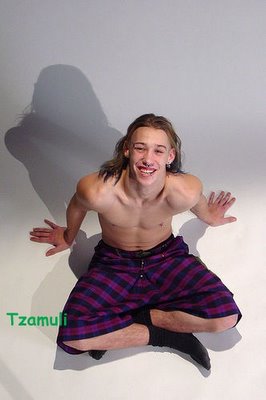 OAKLAND - Like many others in the hip-hop game, San Jose rapper Stuart Mahoney wants to be seen as an artist, first and foremost. He keeps his lyrics general to the point that any lines about relationships could apply to a woman and a man, or in his case, a man and a man.
OAKLAND - Like many others in the hip-hop game, San Jose rapper Stuart Mahoney wants to be seen as an artist, first and foremost. He keeps his lyrics general to the point that any lines about relationships could apply to a woman and a man, or in his case, a man and a man."The way I write my songs is for a universal application, so . . . anybody can listen to it, and be like, `I can totally relate to that.' They don't have to be gay,'' says Mahoney, who will be performing as Mid-One on Sunday at the fifth annual PeaceOut World Homohop Festival in Oakland.
Gay hip-hop. The words aren't often seen together.
Although hip-hop has been around for more than 25 years, the gay hip-hop scene has been slowly developing as an underground phenomenon, networking through the community and on the Internet. In fact, Mahoney -- who was exposed to the hip-hop scene in his teens through some friends who were into graffiti -- was only clued in to this festival last year by a flier he picked up off the ground.
The festival, which started on Friday and continues today and Sunday, is a gathering of lesbian, gay, bisexual and transgender hip-hop artists and fans that was established as a component of the East Bay Pride festivities. Since then, it has become a safe-haven for performers to express ideas and opinions through a genre that is often associated with homophobic actions. Related festivals have started in New York, Atlanta, London and Portland, Ore.
"It was clear that people were hungry for a space to have this,'' said Juba Kalamka, the coordinator and founder of PeaceOut. "There needed to be a hub for the scene because there wasn't a scene to develop around.''
Even Kanye West, one of hip-hop's best-known voices, after recently realizing that his cousin was gay felt the need to admit he had spent his life stigmatizing homosexuals. Then, acknowledging rap's bent toward machismo, he made a plea to fellow rappers to just, "Yo, stop it.''
For West to even bother saying "something like that, regardless of the motivation -- still shines a spotlight on us as out/queer performers,'' says Kalamka, who is part of the "homohop'' group D/DC.
from Mercury News
No comments:
Post a Comment